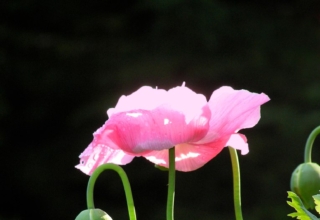
“The Habit Loop” explains exactly what a habit is. According to the author, habits make up 40% of our daily routine. The process within our brains is a three-step loop. First, there is a cue, a trigger that tells your brain to go into automatic mode and which behavior to use. Second, there is the routine, which can be physical or mental or emotional. Finally, there is the reward.
Your daily habits create the foundation of your life–your health, wealth, happiness, productivity, quality of relationships, and energy level. You can become more mindful creating the intention to interrupt patterns that don’t serve you. Establish positive habits that lead to a happy and prosperous life.
Neuroscience research
You create habits as an efficiency mechanism. Neuroscience research tells us that the brain quickly transforms as many tasks and behaviors as possible into habits so that we can do them without thinking. This frees up the brain to deal with new challenges. But first, we have to integrate the new habit and that can feel challenging.
Think about when you start a new activity. Your brain works hard to integrate it into your life, processing huge amounts of new information as you progress through the activity. As soon as you understand how it works, your behavior starts becoming automatic and the amount of mental effort required to perform the activity decreases.
Positive new habits
The best way to approach creating positive new habits that will last is to take baby steps bringing them into your life one at a time. This gives you the opportunity to repeat the habit over and over until it is a part of your automatic behavior, and also allows you to focus the extra brainpower required for the habit on one or few activities so you aren’t overwhelmed. Then when your habit is automatic, you can add another one.
It might seem counter-intuitive, and that this approach will bring slow results. But, when you consider that studies show most people only make changes for a short amount of time before giving up, this approach actually brings results fast. Plus, you can say goodbye to that discouraging yo-yo cycle of starting and then breaking habits! Dieting is a good example of an intention that often goes awry, and demotivates people.
Keystone Habits
Watch this video! http://www.youtube.com/watch?feature=player_embedded&v=4H0fTwtPLfo
“It wasn’t the trip to Cairo that had caused the shift, scientists were convinced, or the divorce or desert trek. It was that Lisa had focused on changing just one habit—smoking—at first. Everyone in the study had gone through a similar process. By focusing on one pattern—what is known as a “keystone habit”—Lisa had taught herself how to reprogram the other routines in her life, as well.” ~ Charles Duhigg in “The Power of Habit”
Download Article

















Peter Cook
January 3, 2014 at 7:58 am
Stopping stuff is much harder than starting things – it’s the unlearning challenge.
I’m sure Michael Jackson would not have had a hit if he called his song “Wanna be stoppin’ something” instead of “Wanna be starting something”
More like this in my books “Sex, Leadership and Rock’n’Roll” and “The Music of Business” at The Academy of Rock Website
Craig Polsfuss
January 6, 2014 at 1:04 pm
Thanks for the interesting and useful article, Julie. I appreciate your mentioning the neuroscience aspect. My work in Higher Brain Living, a recent significant neuroscience advancement, additionally energizes the pre-frontal cortex, which in turn empowers a profound shift experientially, cognitively and functionally.
In effect, habits that do not serve us become organically and intentionally re-wired and replaced with ones designed by the highest intelligence in our brain. This changes the rules of the game. As a psychologist, I have never seen such fast, profound and lasting change.
If you’d like to discuss this and perhaps share it with coaches – who are a prime resource of change agents – I would be happy to connect. Hope so!
libraryofprofessionalcoaching
January 8, 2014 at 11:23 am
Maynard: I always appreciate your contributions to the library. Very thoughtful and based on your own extensive experience and wisdom as a coach and counsellor.
Keto Fitoru
November 27, 2019 at 10:43 pm
This is a very interesting article on the power of habit and the different ways on how we can change them for the better.